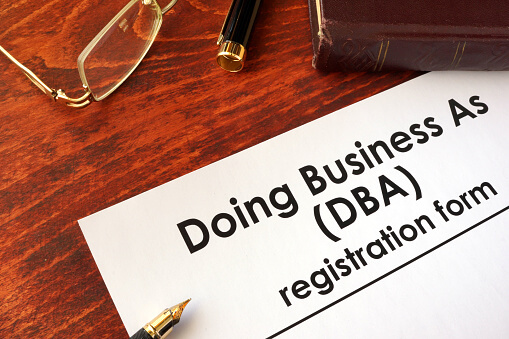Once you've made the decision to start your journey as a small business owner, one of the first things you might decide to do is open a business bank account.
Keeping your business and personal accounts separate with a business checking account can help you organize your taxes and protect your personal assets, when dealing with business loans or a line of credit.
Most banks will ask you for an EIN in order to start your application. Keep in mind that in general, you won’t be able to open a business bank account with only your EIN.
While not all banks have the same requirements, you will have to present other documents to prove that your business was formed legally and operates in line with state and federal laws.
Let’s break down what an EIN is, the purpose of it for a new bank account and other documents you’ll need beforehand to open a new account.
Note: If you are looking for a business checking account and all-in-one business suite for self-employed business professionals, Bonsai is here to help. We offer automatic invoicing, expense tracking, business checking accounts and much more. Claim your 7-day free trial today.
What is an EIN?
An Employer Identification Number (EIN) also known as Federal Tax ID Number, is a nine-digit number issued by the IRS (Internal Revenue Service) to identify businesses for tax reporting.
Not all businesses are legally required to have an Employer Identification Number. Here's when you will be required to get one:
- If your business has employees
- If your business is a partnership or a corporation
- If you file employment or excise taxes
- If you withhold taxes for payments made to non-resident aliens
If you registered your business as a sole proprietorship or a single-member LLC you are not required by the IRS to get an EIN (as long as you don't have employees). However, it's still recommended to get one eventually as it can bring many benefits to your business.
Aside from easing the process of opening a business account, obtaining a business EIN can help you prevent identity theft, increase your business credit score and expedite business loan applications.
You can apply for an EIN completely for free either online, by telephone, via fax or by mail. Keep in mind, you can only apply for one EIN per day and you must form your business ahead of time because you'll be asked for the date of business formation and its legal name.
Why an Ein Is Needed to Open a Business Bank Account?
An EIN serves as proof that your business is legitimate. Without an EIN for a business account, the IRS considers you a private, individual tax payer. This is a way for banks to protect themselves from any potential legal issues by verifying your business’ identity and making sure you are authorized to open a business account.
But, is having an Employer Identification Number enough for a bank to let you have a business checking account?
Unfortunately, the short answer is no.

Do you need more than just an EIN to open a business bank account?
An Employer Identification Number is necessary to open a business bank account, unless your business is registered as a sole proprietorship or a single-member LLC. In this case, you may open a business account using your Social Security Number if you have not obtained an EIN yet.
However, this is not the only document you will need to provide when opening a business checking account. Generally, most banks will ask you for the following documents.
Personal Identification
To open a business bank account, you will need to present proof of your identity. Personal identification documents include any government-issued picture ID, such as a passport or driver's license. This is used to validate the business owner is in fact the person who owns and/or runs the given business.
If there are multiple business owners, a government-issued identification will be required for every person who will have access to the bank account.

DBA Certificate
A DBA (Doing Business As) certificate, also known as Assumed Name or Fictitious Name certificate is an official filing you make with your local or state government to register the name under which you'll be conducting business.
This is only necessary if you registered your business under a different name other than your "legal name". For example, in the case of sole proprietorships, the business' legal name is the name of the business owner (sole owner). In the case of any other business entity, the legal name is provided on the formation documents.
So, if you are not running your business under that legal name, you will need to provide the DBA certificate to open a business bank account.
Business Licenses
In addition to your personal identification, banks may request a business operating license, which serves as a proof of identification for your business. This is to ensure your business is registered with the government for tax purposes, you follow industry regulations, and you have permission to operate in your state or locality.
While a business license is not always required to open a business bank account, some banks may ask for it regardless of the entity type you are registered under.
Let's review some other documents that you may have to present depending on your business type.
Additional Documents Per Business Type
Most of the time, the exact legal documents required to open a business bank account will be different depending on your business entity type. Also, keep in mind, not all banks have the same requirements, and this is just a list of possible documents you might need to present.
Always make sure to verify the requirements with your bank and have all documents ready before you start the process if you want to avoid delays in the approval of your application.
Sole Proprietors
Generally, applying for business bank accounts as sole proprietors is not too much hassle. Other than providing your ID, Social Security Number (or EIN) and DBA in case you have one, you might also need to provide proof of address.
This can be a utility bill, credit card statement, cell phone bill, property tax receipt, lease agreement, mortgage statement, among others.
Limited Liability Company
To open a business bank account as a Limited Liability Company, you might be required additional documents to prove that you have registered your LLC with the state. Some banks may ask for an Operating agreement (or corporate resolution), which serves to outline your business' functional and financial decisions including regulations, provisions and rules.
You may also need to provide Articles or Organization (or articles of incorporation) which establish the existence of your corporation in the United States. Usually, the document includes your company's name, purpose of business, number and value of shares offered, as well as information about directors and officers.
Generally, banks can find these documents by accessing your state's Secretary of State website, however, always make sure you have a way to provide the documents in case they are unable to find them.
Partnerships
If your business is a General Partnership (GP) or a Limited Partnership (LP) you will likely have to provide Partnership Agreement documentation. This document usually includes the following information.
- Names of all partners
- Partnership rights
- Ownership interests and profit shares
- Information about the partnership's management structure
- Valid signatures from all partners
Keep in mind, some states may require LLPs to file partnership agreements through the Secretary of State. Make sure all your paperwork is valid before applying for your business bank account.
Corporations
In the case of a Corporation business entity, you may also be required to provide your Certificate (or Articles) of Incorporation, to establish the existence of your corporation. Additionally, some banks may also ask for your Company Bylaws, which are a specific set of rules adopted by your corporation's board of directors, once your company has been incorporated.
Company Bylaws basically provide a road map for your business, including how many people will be on your board, how to handle conflicts of interest as well as the function of each of your officers.
Why should you provide these documents to open a business checking account?
Depending on your business structure, some of these documents may not be legally required for you. However, if you want to open a business bank account, some financial institutions may ask you for these corporate governing documents especially if your business has more than one owner. But why is it important to provide these documents?
Well, corporate governing documents cover topics like economic rights, voting rights and transfer restrictions. They basically establish financial and functional decision making for your business entity. Therefore, they serve as a way to show that you have the power to open a business bank account, and make financial decisions on behalf of the small business or startup.

The Benefits of Having a Separate Business Bank Account
Keeping your business and personal finances separate can help make sure you treat your business as an independent entity, and not just as a side project or hobby. It may be tempting to just run your business using your personal finances, after all, you are the boss right?, but check out some of the reasons why it's best to take that extra step and open a business bank account.
Additional Perks
Most business bank accounts give you additional perks that don't come with a personal bank account. These benefits include introductory offers like a cash bonus and interest rates for checking and savings accounts as well as the possibility of applying for business loans.
Smooth Tax Season
If you use a separate business account makes it much easier to keep track of your business expenses for tax purposes. You can easily connect your business account to an expense tracker that will help you monitor the usage of your business income, so you can easily estimate quarterly taxes.
This is also a great way to keep all of your paperwork at hand so you can make the most out of your tax deductions.
Personal Liability
Business account keeps your business funds separate from your personal funds, offering great protection of your personal assets. You want to avoid using your personal finances to back any entrepreneurial project, especially when it comes to leases, lines of credit and loans.
Make It Simple, With Bonsai's business account
Are you looking for a fast and simple way to handle your business finances? Well, look no further. Bonsai now offers the ultimate business account for small business owners and professional services; Bonsai's business account
With Bonsai's business account you can manage everything from business capital, to payments, and savings as well as keeping everything organized for tax time. We simply make your finances shine.
As part of our all-in-one business hub, Bonsai's business account is super easy to set up, with minimum opening requirements, no monthly fees and no balance requirements. Start now, and handle your business finances like a pro.






